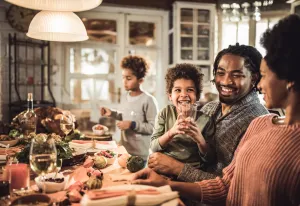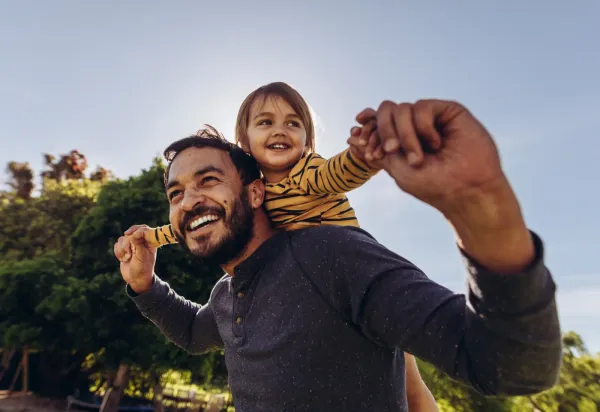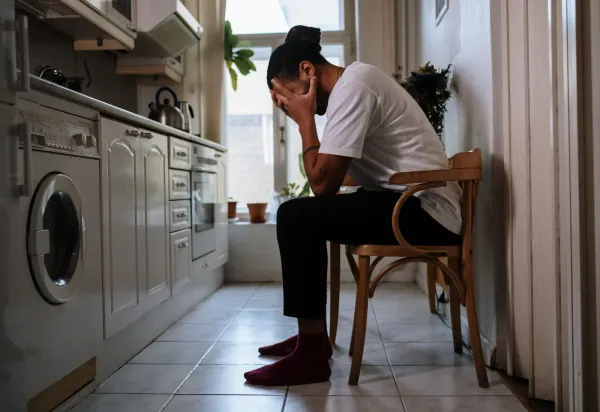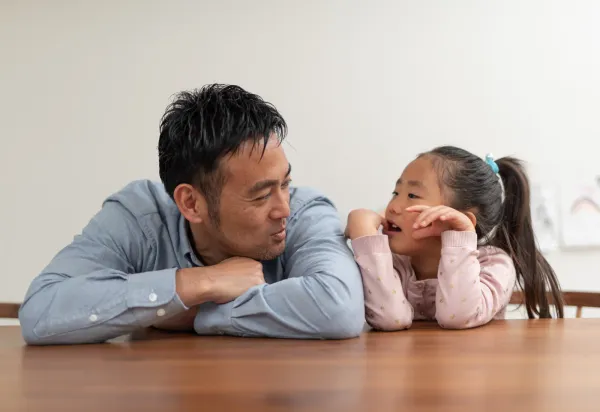My son is not like other boys.
I watch him at kid parties; he is smiling; he seems to be having fun, but he hangs back.
The other boys rough and tumble and throw cups across the room with force. My son dodges the projectiles and moves seats to sit where his head won’t be hit by a flying apparatus.
When it’s time to drive the go-karts, the other boys are excited.
They suit up and live out their wildest race car driving fantasies. At the same time, my son puts on the safety gear, getting as close as sitting in the go-kart before deciding that driving fast around a race course is not his jam.
Without any concerns about what others may think, he exits his vehicle and states that this isn’t for him.
When it’s time to eat the party food, he doesn’t push and shove to reach for the candy or demand the most significant piece of cake; he sits calmly in his chair and waits his turn.
The boys finish eating, jumping up, and running wild from the sugar. I make sure my watchful eyes are not too far away so he knows I’m still there, but not too close to suffocate him.
I notice him bending down to tie the untied shoelaces of another child.
I’m proud of his kindness.
I’m the only parent at the party other than the hosts. My son asked me to stay, and he feels more confident knowing I am there.
He has such innocence that has followed him throughout his nine years of life.
My son was our fourthborn
His oldest sister was first, followed by another stillborn son. After our loss, we were fortunate enough to get pregnant again, this time with my second daughter. Four years later, my youngest, another son, was born.
My daughters were what society would consider “girly girls.” They loved playing with dolls, dressing up in costumes, playing imaginary role-play games, and wearing pretty dresses and skirts.
When my son came along, his sisters adored having a real live baby in the house, especially my second daughter, who has always loved to pretend she was the mother to her soft toys and plastic baby dolls.
My husband is an alpha male. He is a former elite sportsman, and if not for a career-ending back injury, he would have enjoyed a very successful professional football career.
He has lived, eaten, and breathed sports all his life.
After having two very feminine daughters, the arrival of a son excited my husband about having a boy to play sports with
He dreamed of teaching him how to kick a football; he would have coached any of his sports teams. He couldn’t wait to take our son to pro football games or cheer on their team together from the living room when their team played out of state.
Just like my husband’s father, who drove my husband as a young boy to every possible sporting activity after school and on weekends, he couldn’t wait to do the same and cheer with pride from the sidelines.
However, our son is not like other boys.
He doesn’t like sports.
He has given many sports a trial run. He enjoyed kicking a soccer ball, so we put him in a little league. He enjoyed learning the skills. When it came time to play a game, our son gave it a go but didn’t enjoy it. It seemed like he was overthinking every move of every player on the field, and it just overwhelmed him.
When he was six, our son became really interested in the NBA basketball league.
He knew all the teams and enjoyed learning about the players.
A friend of his at school was starting to do a basketball skills program, so we took our boy along to see if he would enjoy it.
Once again, learning the skills was enjoyable for him. Playing the games wasn’t.
He appeared to be scared of the ball. He was afraid to get hit with it if he didn’t catch it in time. I wondered if his fears were holding him back from enjoying getting involved in all these activities.
He also tried Australian Rules football, karate, and athletics; the outcome was the same. He enjoyed it at first but then didn’t. And because his fears affected his attitude, the other kids involved in the teams or sports developed more skills. They improved faster, whereas our son didn’t.
The older he has become, the more obvious the sporting skill gap between our son and his peers has become.
Sports are just not his thing.
Instead of enrolling him in various sporting clubs, we have let him dictate if and when he wants to try a new sport. I thought taking the pressure off might give him the space and time to find what he enjoys.
Thanks to COVID lockdowns, he discovered he enjoys gaming.
My husband and I are not gamers. I played some Nintendo as a kid but know nothing about Roblox, Minecraft, or Fortnite.
My son is a specialist in these games.
Sometimes, I wonder if my son does not encompass the alpha male traits like so many of his friends because he has two older sisters.
If he had older brothers, would he be more inclined to climb every surface, take risks by jumping off furniture, spend hours outside throwing and catching balls, or launch into a wrestling match with other boys?
Does the gender of siblings play a part in influencing the hobbies a child enjoys?
A research study suggests no. The results of the study help refute the idea that brothers or sisters cause each other to develop “feminine” or “masculine” personality traits over the long term.
All I want is for my son to be happy. That’s all I wish for all my kids.
However, I’m worried that gaming doesn’t lead to happiness.
He is at an age where, at school lunchtime, all the boys race to the sports field to play soccer.
He heads to the library to meet up with a friend from his who is in the year below, and they hang out, playing Lego and discussing games until the bell rings to return to class.
He doesn’t want to play soccer with the other boys, and he is oblivious to the idea that he may be ostracizing himself and preventing himself from having the opportunity to build friendships with the other boys by always running in the opposite direction.
From another perspective, I also know that these are my concerns and worries for him as his mother, and they do not even enter his mind.
He is a very well-liked little boy at school.
When we walk into the gates in the morning, many other boys stop and say hi to him. His teachers tell me that in class, he constantly works well with the other kids in group activities. They tell me he is confident and eager to learn.
No one is ever mean or nasty to him.
He is happy.
I may need to stop worrying. I may need to change my mindset and celebrate that my son is unlike the other boys.
He’s an incredible kid
He thinks about things in a different way from the way I think. As a result, I enjoy our time together; I learn so much from our conversations together, about some of the most obscure topics.
He asks well-thought-out questions, often based on situations or experiences he has been through, and has marinated in his thoughts before asking about what he doesn’t understand.
He always tells me cool and interesting facts.
He genuinely doesn’t care what others think of him, and he will not follow a crowd in order to fit in.
He is stubborn and content with doing what he enjoys, and he doesn’t need others to approve or get involved.
He treats other people, kids, and adults, with kindness, and if he doesn’t like someone or finds them annoying, he chooses to walk away rather than put someone down.
He sets an excellent example for the other kids and is humble about receiving praise.
In a world that often celebrates assertive behavior, my son stands out for his quiet and introspective nature. His refusal to conform to societal expectations is a testament to his strength and resilience.
Despite pressure to participate in sports or athletics more, he stays true to himself and is unaffected by outside factors. This is one of his most remarkable traits.
Through his unique approach to life, he teaches me the value of staying true to my authentic self and embracing my individuality.
The lesson here is for us to learn from his example and celebrate the diversity of traits that make each of us special because he is one of the most special boys there is!
This article was originally published at Medium. Republished with permission from the author.










Member discussion